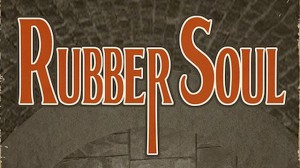You’ve probably heard Greg Kihn on your morning commute. He was on KFOX every morning for sixteen years. You may also know him from MTV, in the ’80s his song “Jeopardy” was in heavy rotation for awhile. Greg Kihn is to another generation our James Franco — you know the type: the actor slash producer slash author slash etcetera. Except instead of actor turned author, Kihn is a songwriter slash musician slash radio host slash author. As a people, we seem to have formed a consensus on this: too many slashes mean one or a couple of categories get undercooked. Indeed, criticism of Franco’s books all tend to boil down to the same thing: the writing is promising, but the performance on the page doesn’t reach the heights of Franco’s performance in front of a camera. Ditto Kihn. His literary efforts don’t reach his sharpness as a pop star or radio host.
Rubber Soul is Kihn’s fifth book, and the idea behind it is a catchy one. In his incarnation as a radio host, Kihn had the opportunity to interview three Beatles: Paul McCartney, Ringo Starr, and Pete Best. He asked about the early days, when the Beatles were just another local cover band in Liverpool with an American rock n’ roll repertoire. What Kihn wanted to know was — how did the Beatles get a hold of vinyl records that were only being released in America? The answer is the band had contacts within the marines. Marines, traveling back and forth between Liverpool and the United States, fed the Beatles the newest releases from America. It’s a good premise for a book: sailors with vinyl contraband frequenting ports and dark alleys and the Beatles. From there, Greg Kihn crafted his novel. It wasn’t many marines who supplied the Beatles with the new vinyl releases from America, but just one: Dust Bin Bob.
Rubber Soul is meticulously researched, using real events and situations, but making up everything else. Kihn’s lines can be nuanced, explosive, and vividly seen. In describing a faded, older woman, Kihn writes, “She might have been pretty once, and the ghost of it still haunted her face.” But more often than not, the book feels like musical scholarship in the excuse of a novel. The prose is often subverted by expository knowledge. This passage, for example, begins expertly well, but soon loses momentum: “Bobby pulled the stack of thick 45rpm records out of the box. The paper sleeves rustled through his fingers like bills in stacks of currency. Bobby knew American 45s better than most U.S. teenagers did. He knew they’d begun as disks for American jukeboxes, playing music in bars and roadhouses Bobby could only imagine. He knew that their huge spindle holes were a carryover from that original jukebox function which made it easier for a machine to handle them.” Hardly the stuff I thirst to know on page four.

The Fab Four by United Press International. Image: Wikimedia Commons
At other times, Kihn’s delight in music is palpable. In one early occasion, Dust Bin Bob lets his teenage peers (John Lennon, George Harrison, Paul McCartney) listen to his records. Barret Strong’s “Money” spellbinds the three and immediately they busy themselves with reproducing it. “Bobby felt goose bumps rise on his arms and neck. The others came in one by one, layering each enthusiastic vocal on top of the next, building to a crazy crescendo. Musical energy crackled in the air like electricity. Bobby’s fingers and toes twitched. The harmonies were dead on, sung with exuberance. But it was more than that. The intangible quality he listened for between the grooves was there.”


